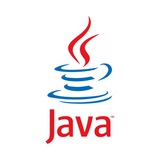tg-me.com/topJavaQuizQuestions/403
Last Update:
Understanding Java's Optional Class
In my journey as a developer, I've encountered many scenarios where nullability caused headaches. Enter the Optional class in Java! This nifty feature helps us avoid the dreaded NullPointerException.
What's Optional?
- A container object which may or may not contain a non-null value.
- It provides methods like isPresent(), get(), and ifPresent() to manage values safely.
Creating an Optional:
You can create an Optional in two ways:
1. Optional.of(value) - returns an Optional with a non-null value.
2. Optional.ofNullable(value) - returns an empty Optional if the value is null.
Example:
Optional<String> name = Optional.ofNullable("John");
if (name.isPresent()) {
System.out.println(name.get());
} else {
System.out.println("Name not found");
}
Best Practices:
- Use Optional as a method return type, not for fields.
- Avoid using get() unless you're sure a value is present.
By leveraging Optional, we can write cleaner, safer code. Embrace this feature to enhance your Java projects! 🌟
BY Top Java Quiz Questions ☕️
Warning: Undefined variable $i in /var/www/tg-me/post.php on line 283
Share with your friend now:
tg-me.com/topJavaQuizQuestions/403
